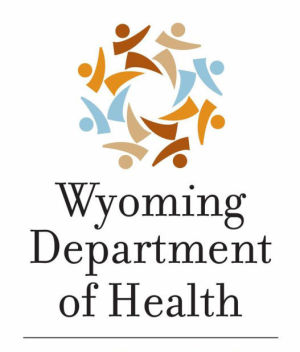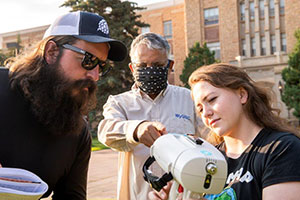By Staff – 22 July ’14
With continued growth in reported pertussis (whooping cough) cases this year, the Wyoming Department of Health (WDH) is encouraging awareness of the disease and vaccination to help protect vulnerable residents, especially infants.
Forty-three pertussis cases have been reported to WDH so far this year, compared to a total of 76 in 2013, 59 in 2012, 13 in 2011 and 14 in 2010. Actual case numbers are likely higher because many illnesses are not recognized as pertussis and others may not be reported.
“Increased pertussis activity is something we watch closely,” said Dr. Wendy Braund, state health officer and Public Health Division senior administrator with WDH. “Campbell County is of specific concern right now. We’ve seen several cases there recently, including some involving pregnant women or individuals linked with pregnancy-related settings.”
Pertussis typically begins with cold-like symptoms and perhaps a mild cough. Pertussis is often not suspected or diagnosed until a persistent cough with spasms sets in after one to two weeks. Infants and children can cough violently and rapidly with a loud “whooping” sound.
The most severe danger is for babies. More than half of infants less than 1 year of age who become ill with pertussis must be hospitalized; in some cases it can be deadly. “We have been fortunate in Wyoming in recent years, but other states have seen large outbreaks with a number of infant deaths,” Braund said.
Braund said the Tdap adolescent/adult pertussis booster vaccine is important for those who spend time with new infants. “If you are pregnant or planning on becoming pregnant, you should talk to your doctor about a Tdap vaccine, which can help protect infants.”
Babies can catch pertussis from a family member or other caregiver who may not realize they have the disease. “It’s a good idea to make sure all people around your baby are vaccinated, including siblings, grandparents, other family members and childcare staff,” Braund said. Infants should also be kept away from individuals who have an illness characterized by coughing.
Pertussis is considered a vaccine-preventable disease; about half of Wyoming’s cases this year involved children who had not been vaccinated or fully vaccinated. “We recommend residents stay up to date with their pertussis vaccines,” Braund said. “Those who still become ill with pertussis even after vaccination are less likely to have a severe infection.”
Braund said pertussis is not always recognized by healthcare providers and families because it has not been especially common over the last several decades due to widespread immunizations.



